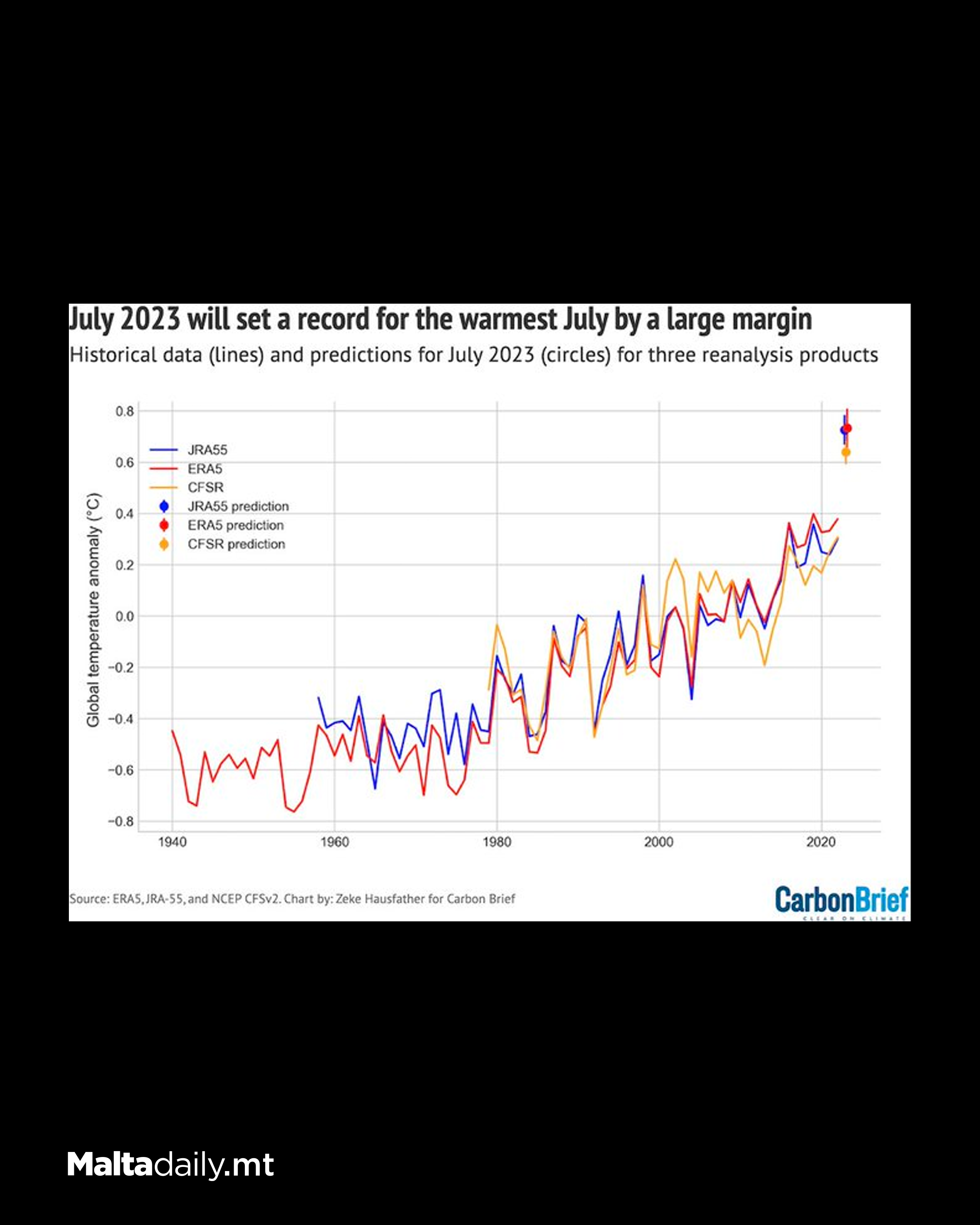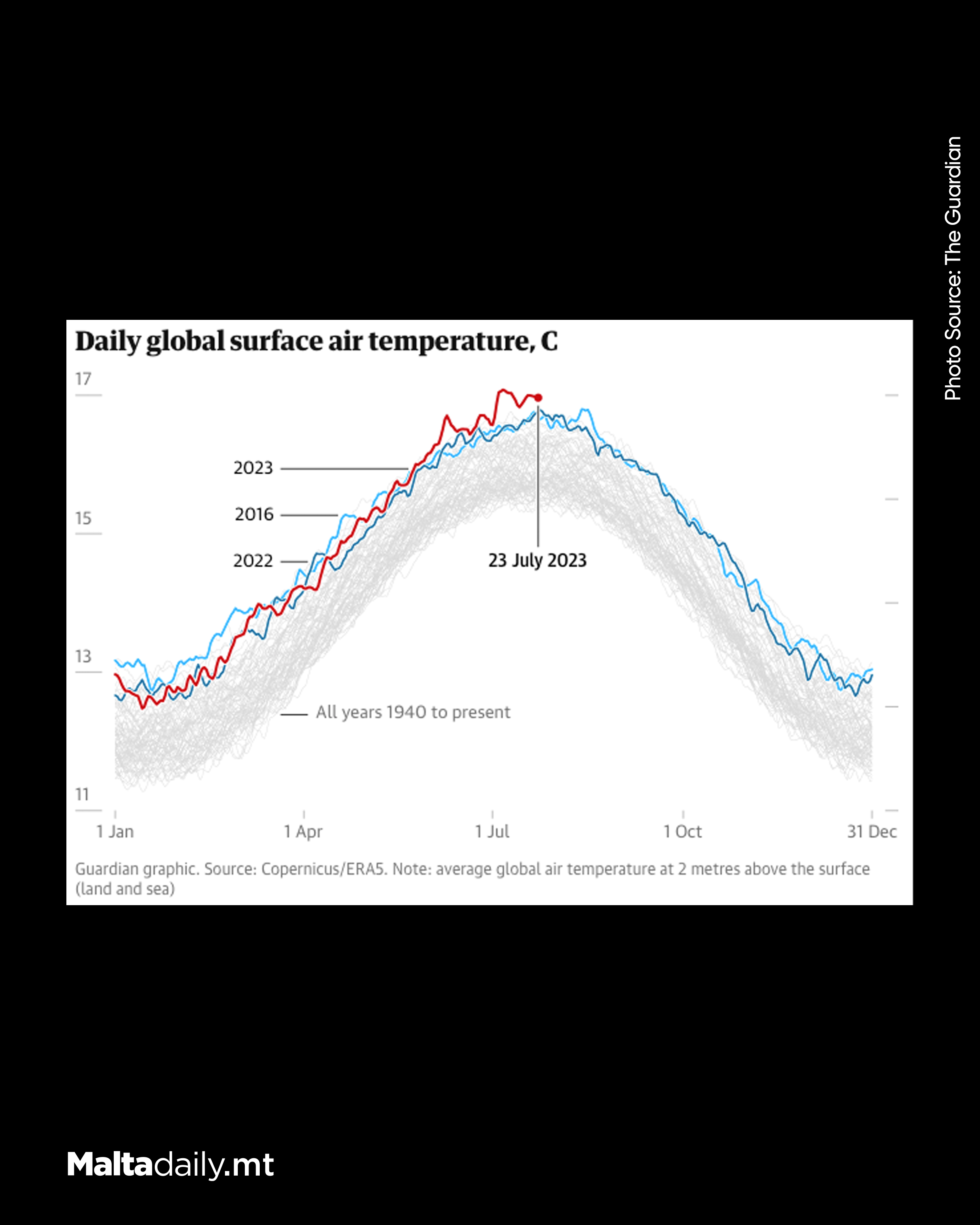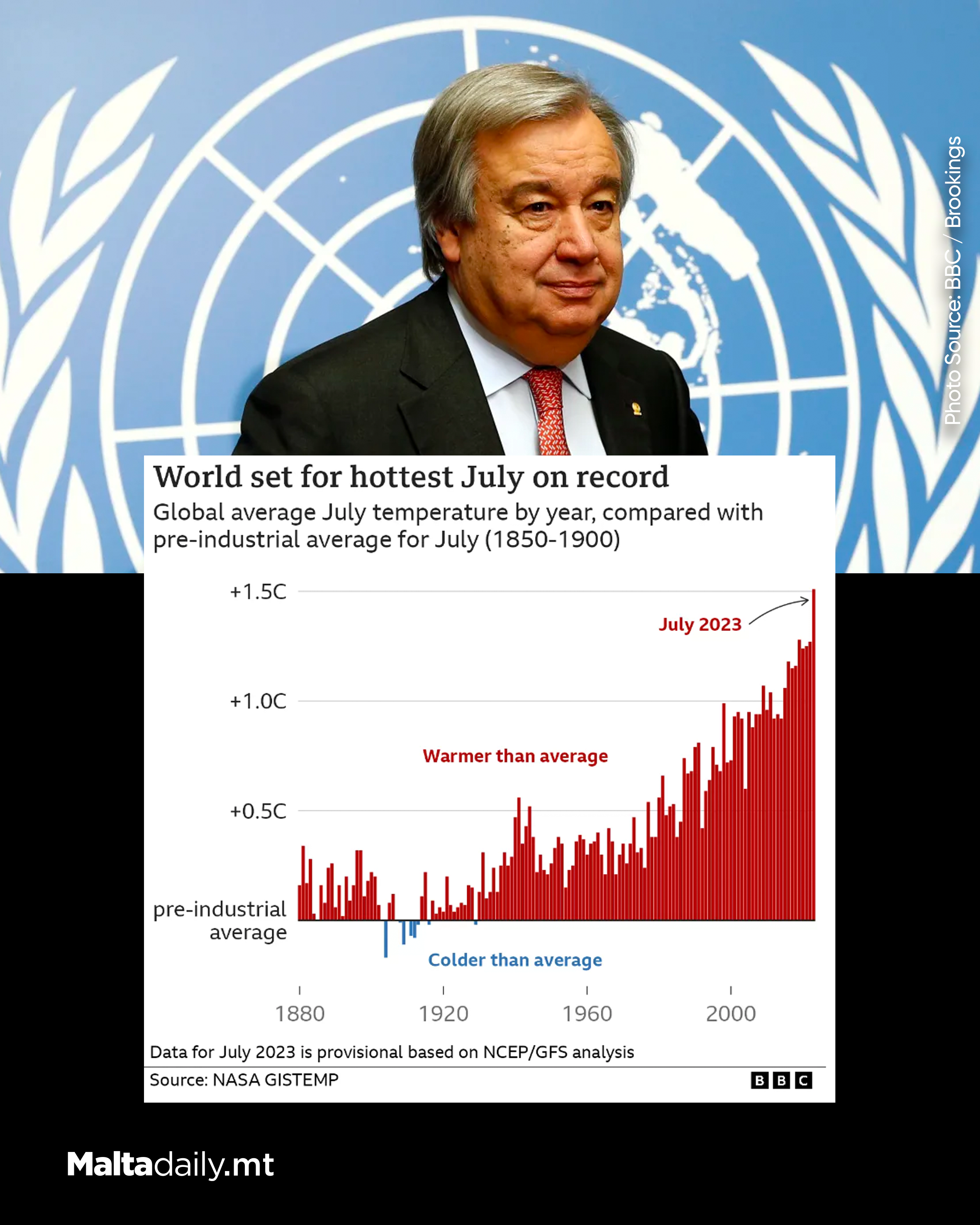
In July 2023, the world is witnessing an alarming rise in temperatures, with experts predicting that it will become the hottest month on record globally. Vast areas of three continents are experiencing extreme heat, and there is also unprecedented ocean warming, raising concerns about the state of the planet’s climate.
The European Union’s Copernicus Climate Change Service and the World Meteorological Organization have reported that July 2023 will likely break temperature records by a significant margin. The average temperature for the first 23 days of the month was recorded at 16.95 degrees Celsius, surpassing the previous record set in 2019. While the WMO is awaiting final data in August before officially declaring the record, a study by Germany’s Leipzig University has already predicted that July 2023 will indeed claim the top spot.

This three-week period has seen the hottest temperatures ever recorded, and scientists believe that such extreme heat has not been experienced on Earth for over a hundred thousand years. The data used to track these temperature records goes back to 1940, but experts, including those at Copernicus, contend that these current temperatures are likely the warmest the planet has seen in 120,000 years. This conclusion is drawn from the analysis of climate data from various sources such as tree rings, coral reefs, and deep sea sediment cores, providing insights into the planet’s climatic history over millennia.
According to EU data, this month’s mean global temperature is projected to be at least 0.2 degrees Celsius (0.4 degrees Fahrenheit) warmer than the previous record-holder, July 2019, which had been the hottest month in the 174-year observational record.
Climate scientists are in agreement that human-caused climate change is the primary driver behind these extreme heat conditions. The rise in greenhouse gas emissions due to human activities is exacerbating the greenhouse effect, trapping more heat in the atmosphere and leading to global warming. This situation emphasises the urgency of taking action to reduce greenhouse gas emissions, transition to cleaner energy sources, and implement measures to mitigate the impacts of climate change. As the consequences of extreme heat become more evident, it becomes crucial for countries and individuals to work together to address the global climate crisis and protect the planet for future generations.
#MaltaDaily
















